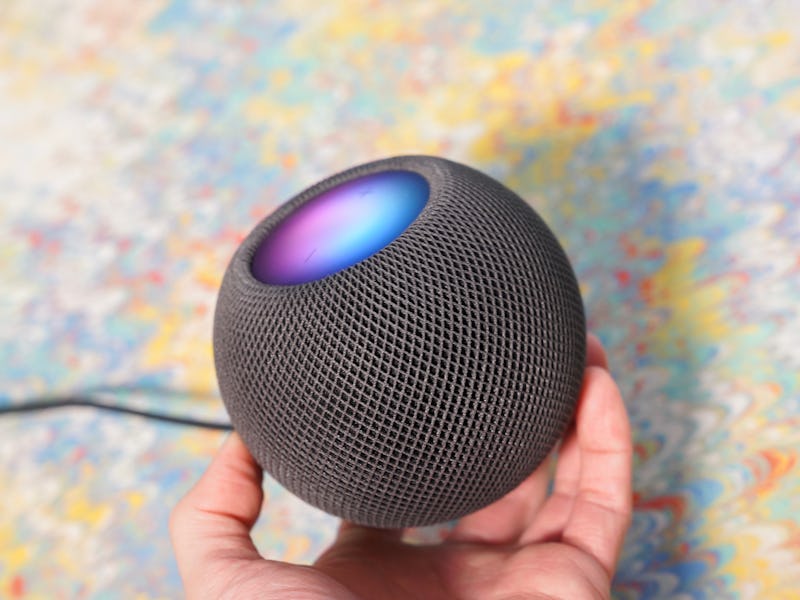Apple is taking the wraps off the HomePod mini’s secret sensor
Apple's smaller smart speaker is gaining the ability to sense temperature, humidity, and more via a software update.

The HomePod mini is gaining the features of Apple’s new second-generation HomePod thanks to a software update that should arrive alongside iOS 16.3 later this month. The smaller smart speaker will soon be able to sense temperature and humidity, let you set up smart home automations with just your voice, and detect and identify other sounds in your home.
While Apple updates its products with a pretty regular cadence, the added wrinkle of the HomePod mini’s new skillset is they partially rely on a secret sensor in the device itself, an odd precedent to set given Apple’s privacy-focused vision of consumer technology.
The secret sensor
The presence of a temperature and humidity sensor inside the HomePod mini was previously reported by Bloomberg, but it wasn’t clear if and when Apple would enable the feature. Now that the new (old) HomePod is touting temperature and humidity monitoring as one of its headlining features, it seems Apple doesn’t want to leave its smaller speaker behind.
Not only has the HomePod mini’s product page been updated to acknowledge the new features, but owners running the release candidate of iOS 16.3 and able to download the 16.3 version of the HomePod’s software have started testing the features for themselves.
Climate information is viewable in the Home app or by a “Hey Siri” command, with the all-important option to set smart home automations based on what your HomePod detects as the biggest change to functionality. I could theoretically have my HomePod turn on a space heater if it notices the living room dropping below 50 degrees Fahrenheit without busting out a separate temperature sensor. A major cost-saving convenience in my book, and one that makes Apple’s current HomePods more smart home hub-ish than they previously were.
Other additions, like having the HomePod use Find My to track friends, family, or your AirTagged belongings, tie ambient sounds to specific automations, or detect alarm noises from your non-smart gadgets like a smoke detector, are useful improvements that bring the HomePod more in line with its Amazon Echo and Google Nest Audio competition.
Trust issues
Apple adding much-needed features to its smart home products is a good thing — especially as it’s reportedly going all-in on the smart home — but it is a bit odd it included functionality in its device that it just didn’t inform users about.
Hiding a temperature and humidity sensor is not the same as a hidden microphone or camera — something that actually happened with a Google Nest guard device — but it is an example of where Apple’s desire to surprise and delight customers clashes with its goal of being transparent and respecting customers' privacy. I can’t imagine anyone doing something nefarious with the knowledge of how warm your bedroom is, but it’s more the principle of the thing. You deserve to know everything your device can do from the horse's mouth, not a reporter who discovers it weeks or months later.